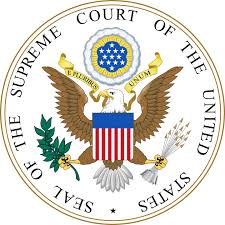 On Friday, state officials in Michigan, seeking to move a test case on same-sex marriage onto an even faster track, asked the U.S. Court of Appeals for the Sixth Circuit to put that question before the full, en banc court without waiting for different three-judge panels to rule. All four states within the Sixth Circuit’s geographic area now have appeals on that issue pending at the appeals court, the new petition noted. On Friday, state officials in Michigan, seeking to move a test case on same-sex marriage onto an even faster track, asked the U.S. Court of Appeals for the Sixth Circuit to put that question before the full, en banc court without waiting for different three-judge panels to rule. All four states within the Sixth Circuit’s geographic area now have appeals on that issue pending at the appeals court, the new petition noted.
This is the first time that a state which has had its ban on such marriages struck down in a district court has asked for full court review of an appeal. (Meanwhile, in one of the cases already at the Sixth Circuit, from Ohio, a judge has promised an even broader ruling soon. See this post, below.) Arguing that the constitutional controversy over gay and lesbian marriages is of “exceptional importance,” Michigan officials told the Sixth Circuit Friday that “the question’s importance is highlighted by the fact” that each of the four states in that circuit had adopted a similar ban on such marriages and that each has been wholly or partly nullified. “To resolve this issue swiftly and to preserve the resources of the court and the parties, Michigan petitions for initial hearing en banc,” the state filing said, noting that all four cases from courts within the circuit “are proceeding swiftly in parallel and will have briefing completed within weeks of each other.” Read more at SCOTUS Blog. |




